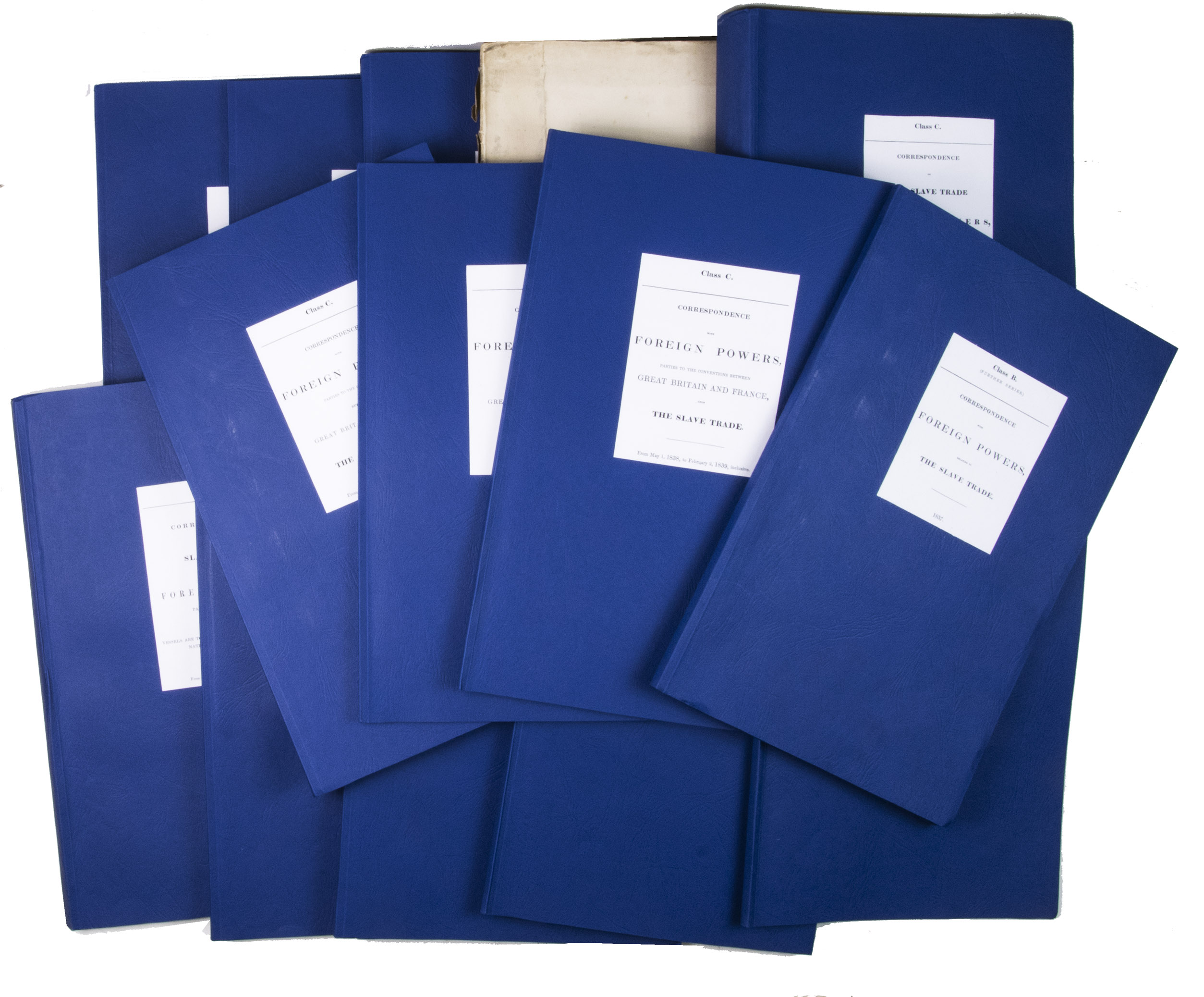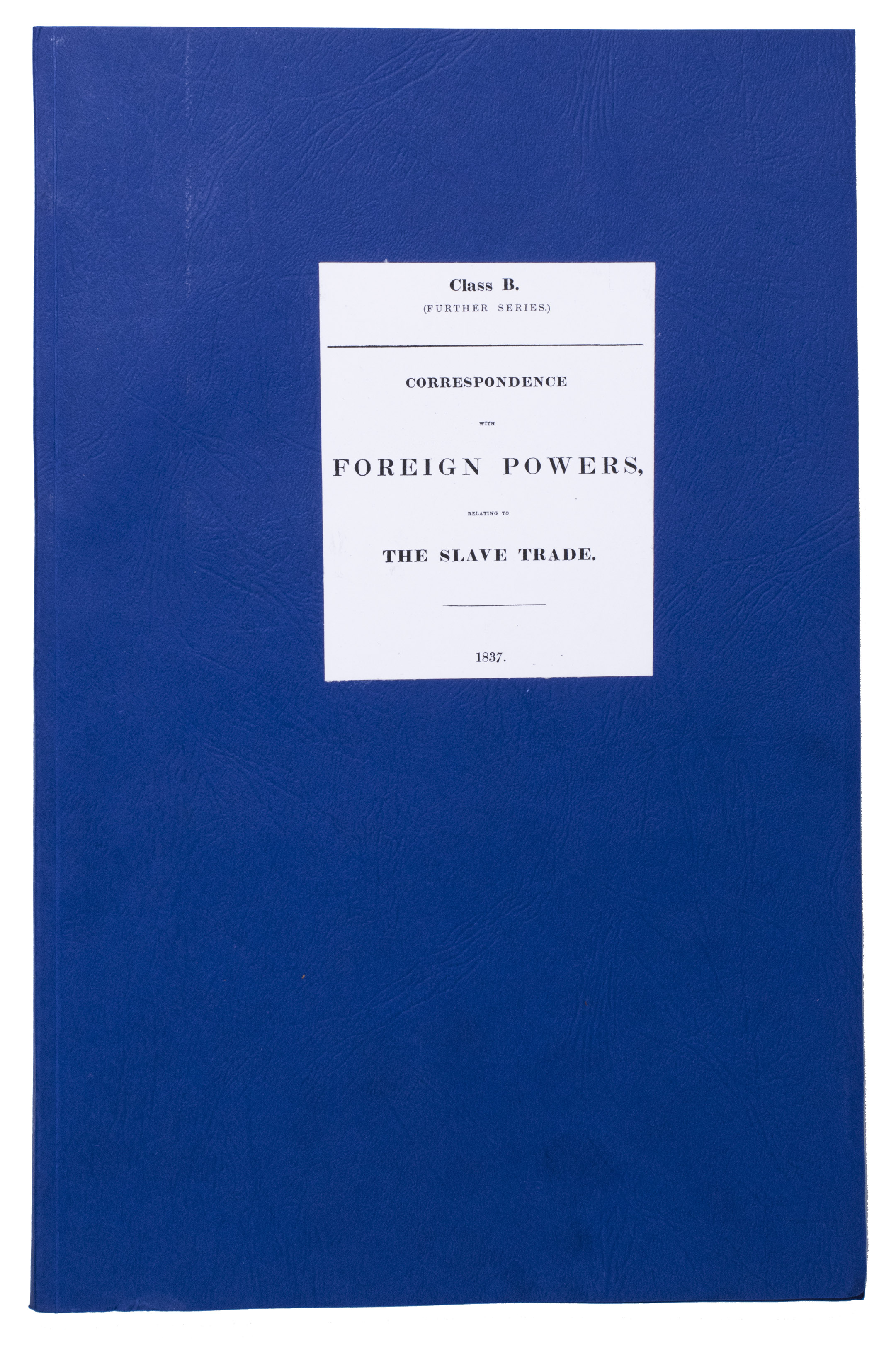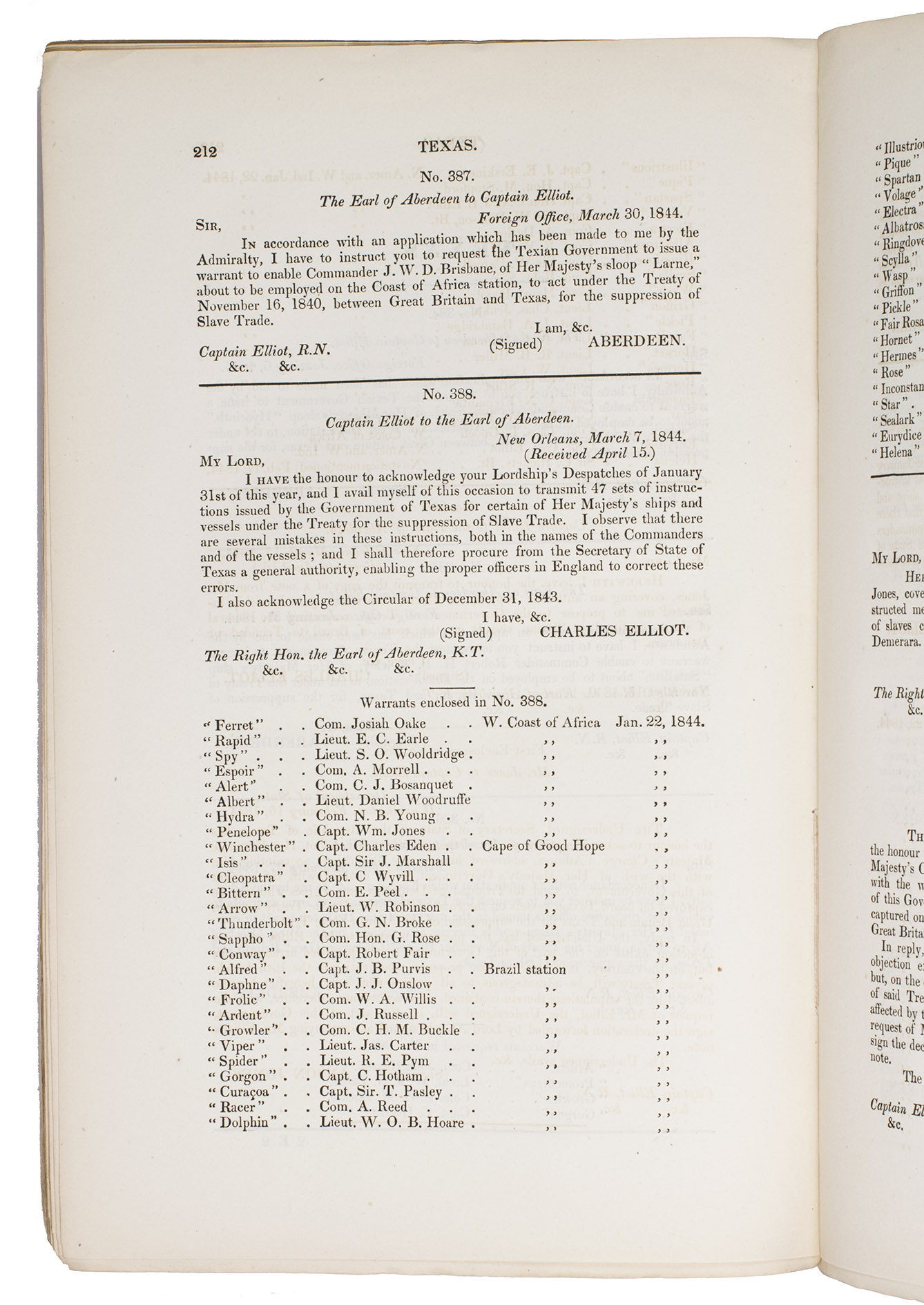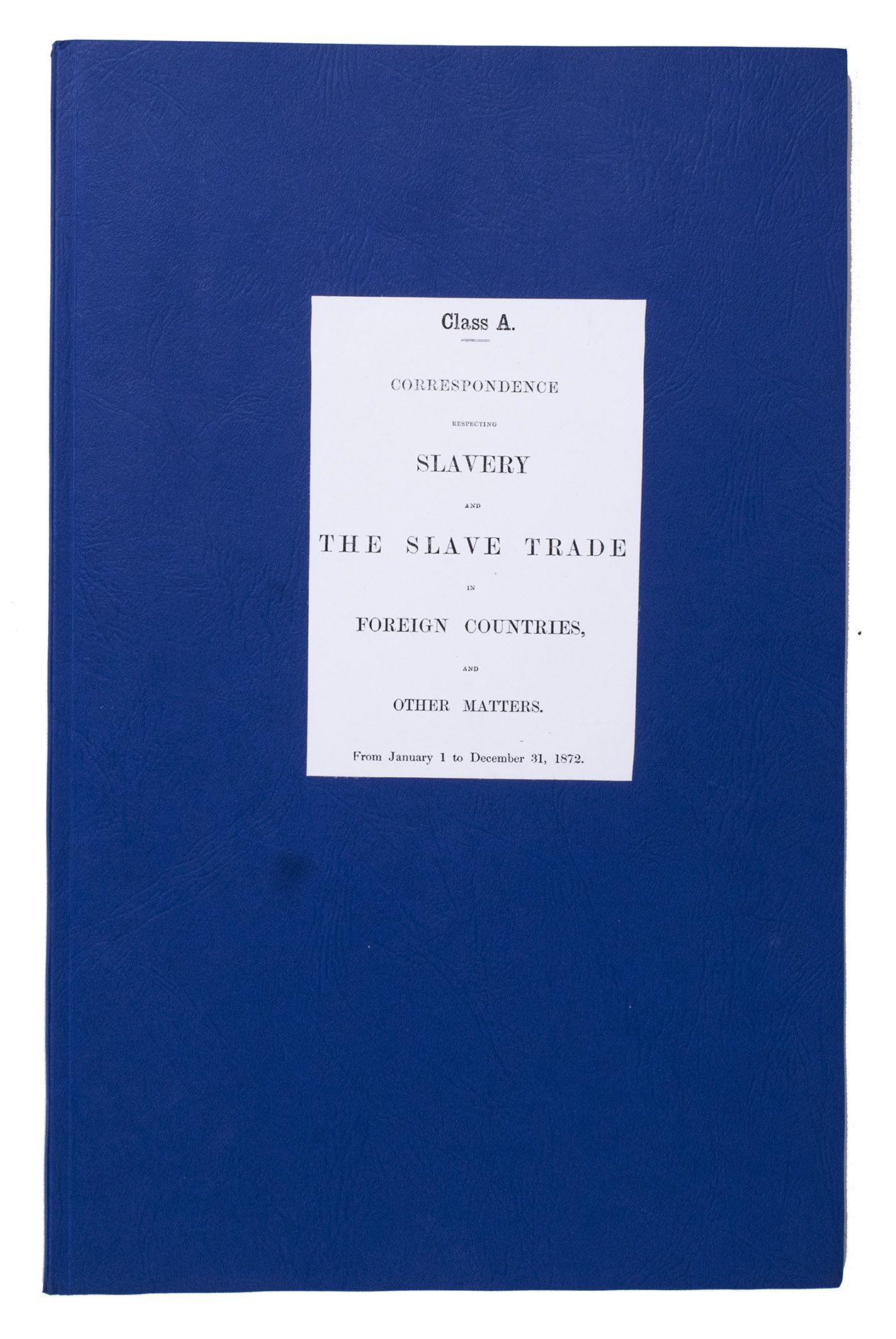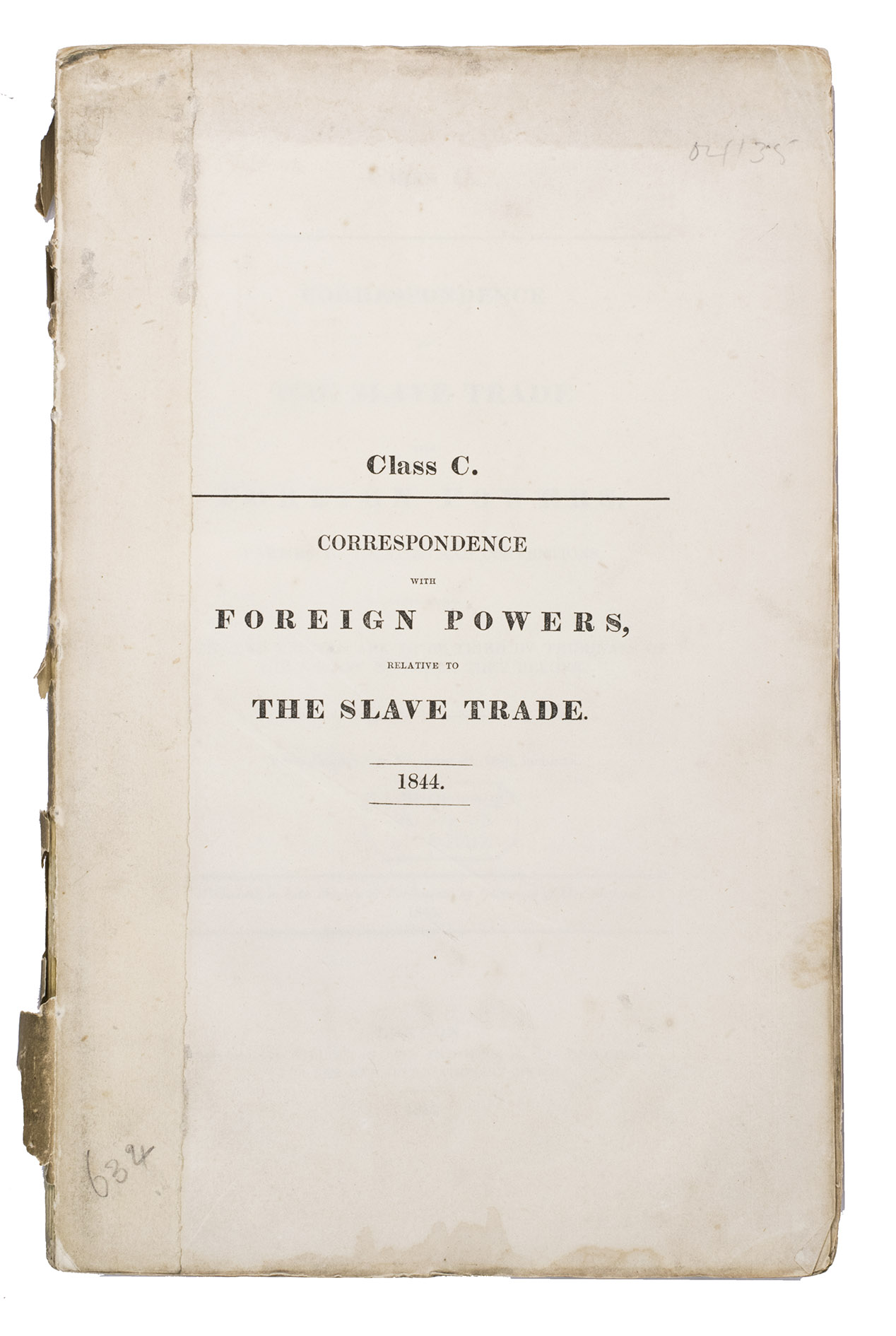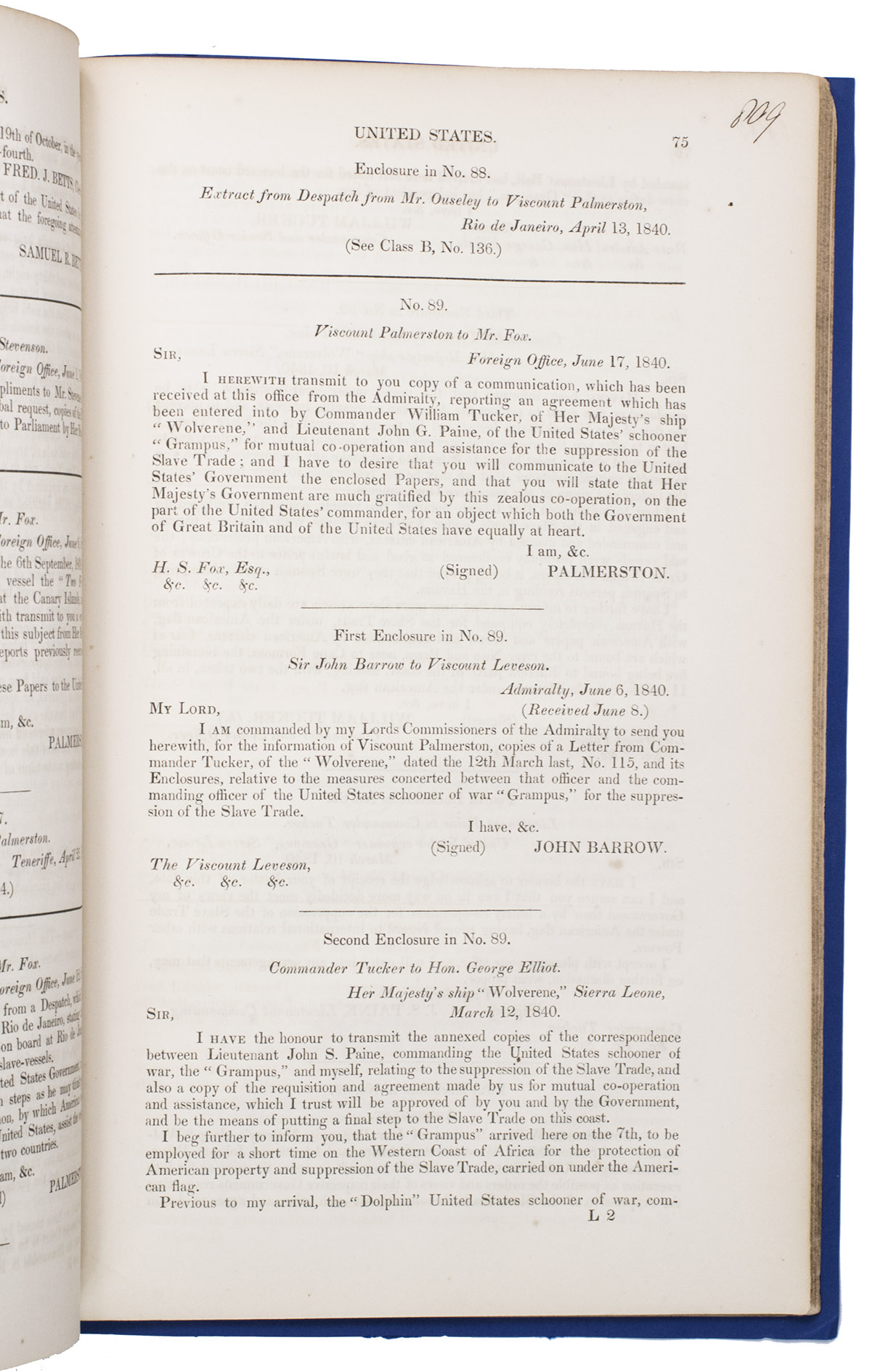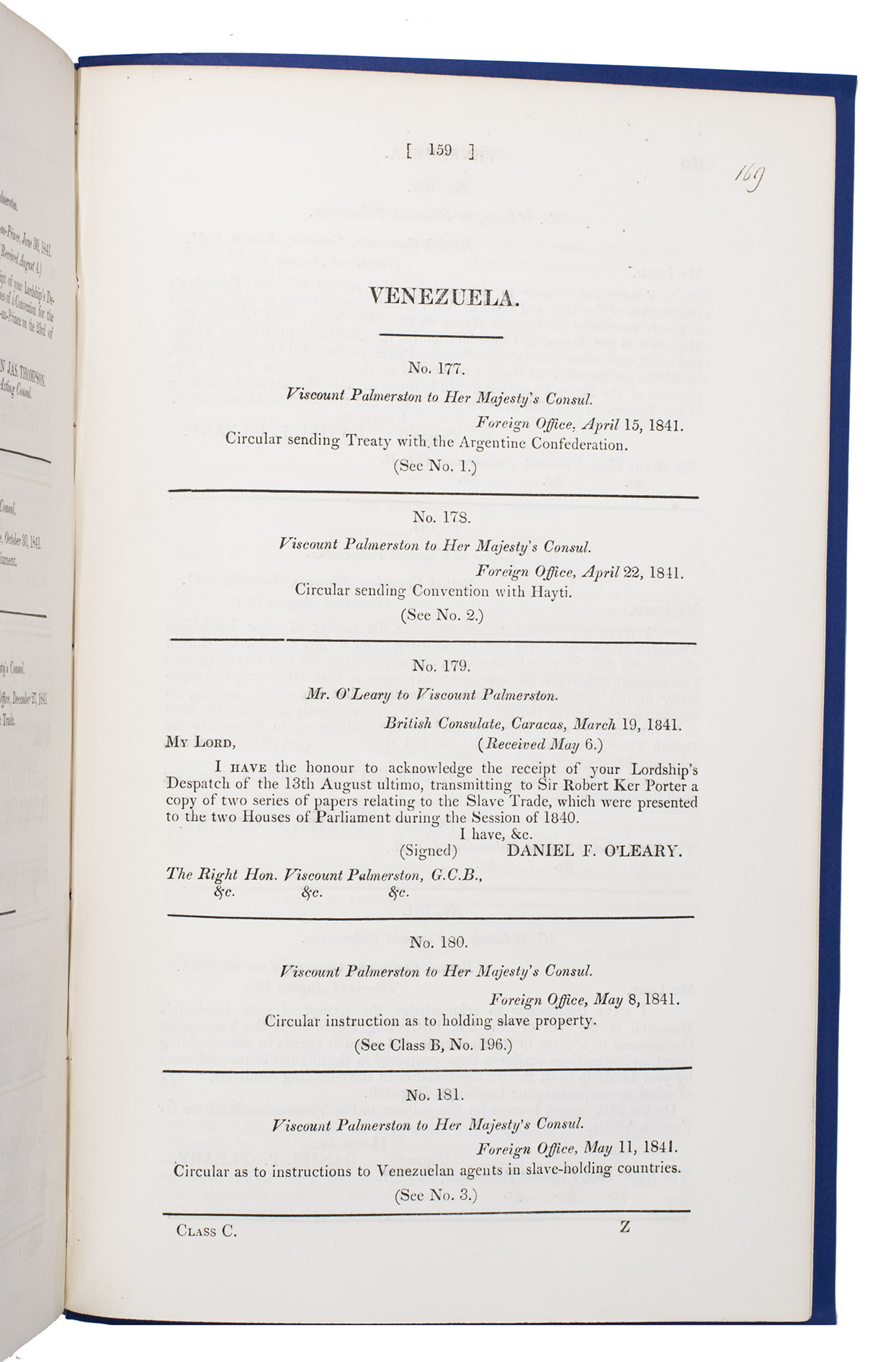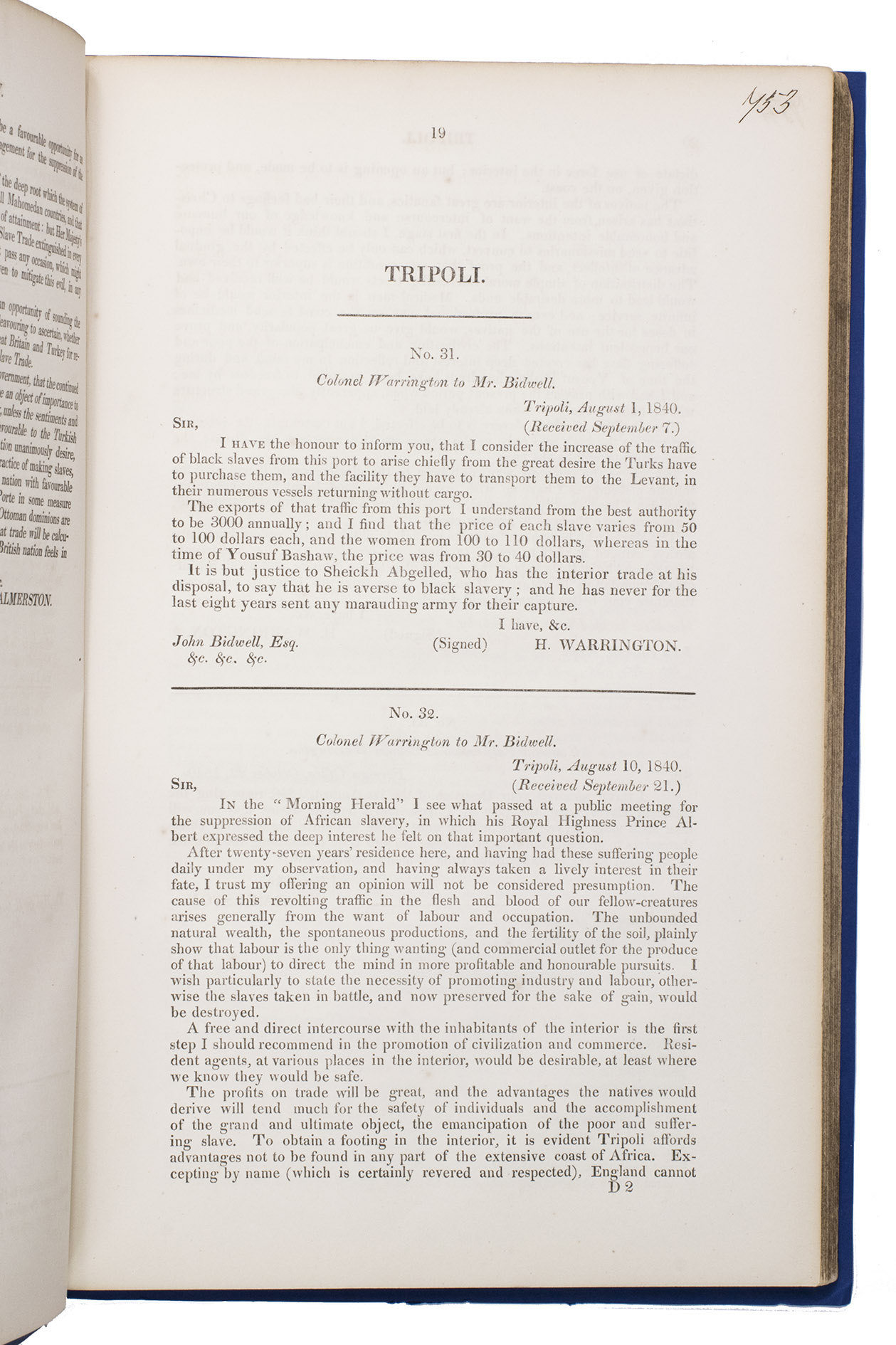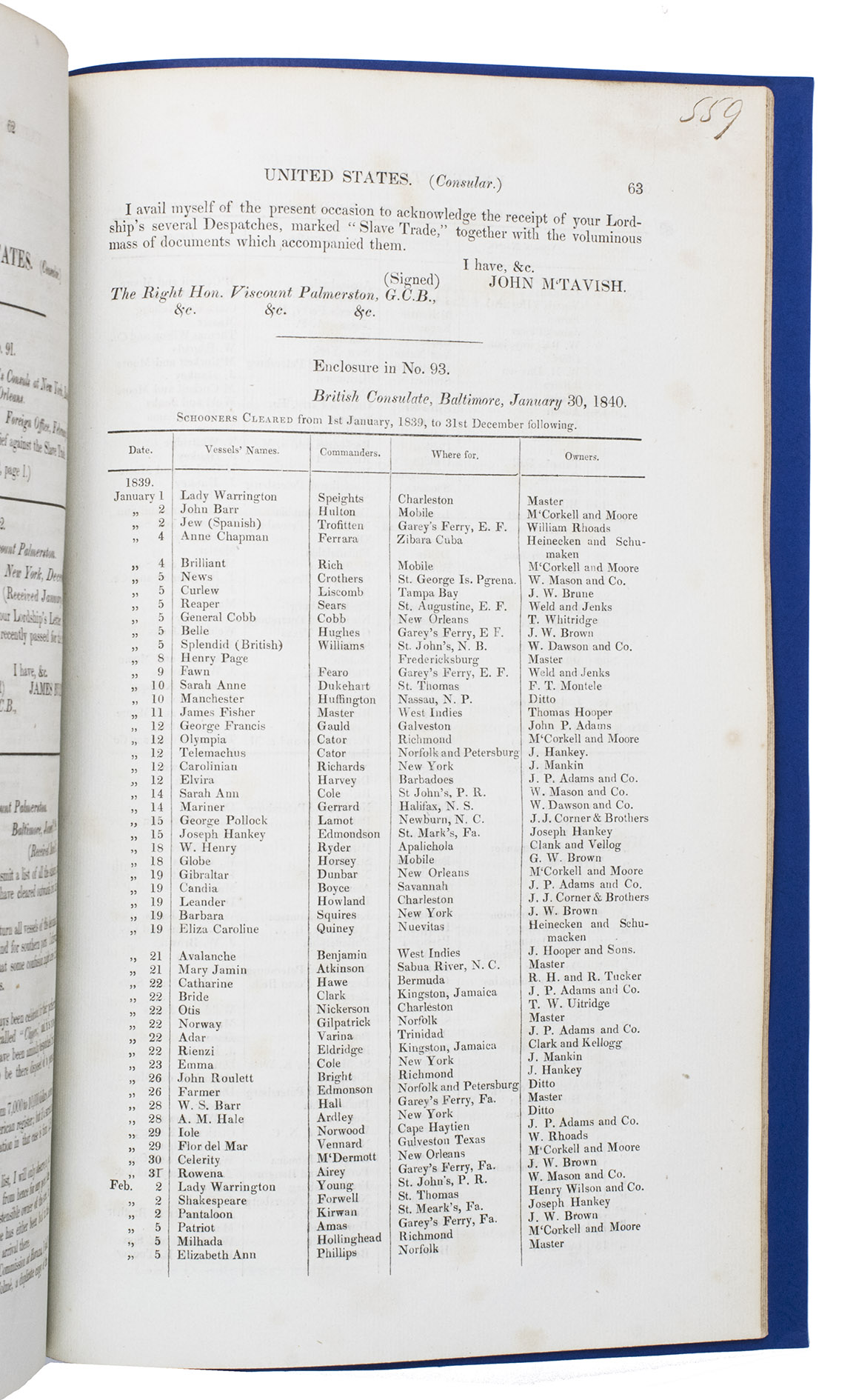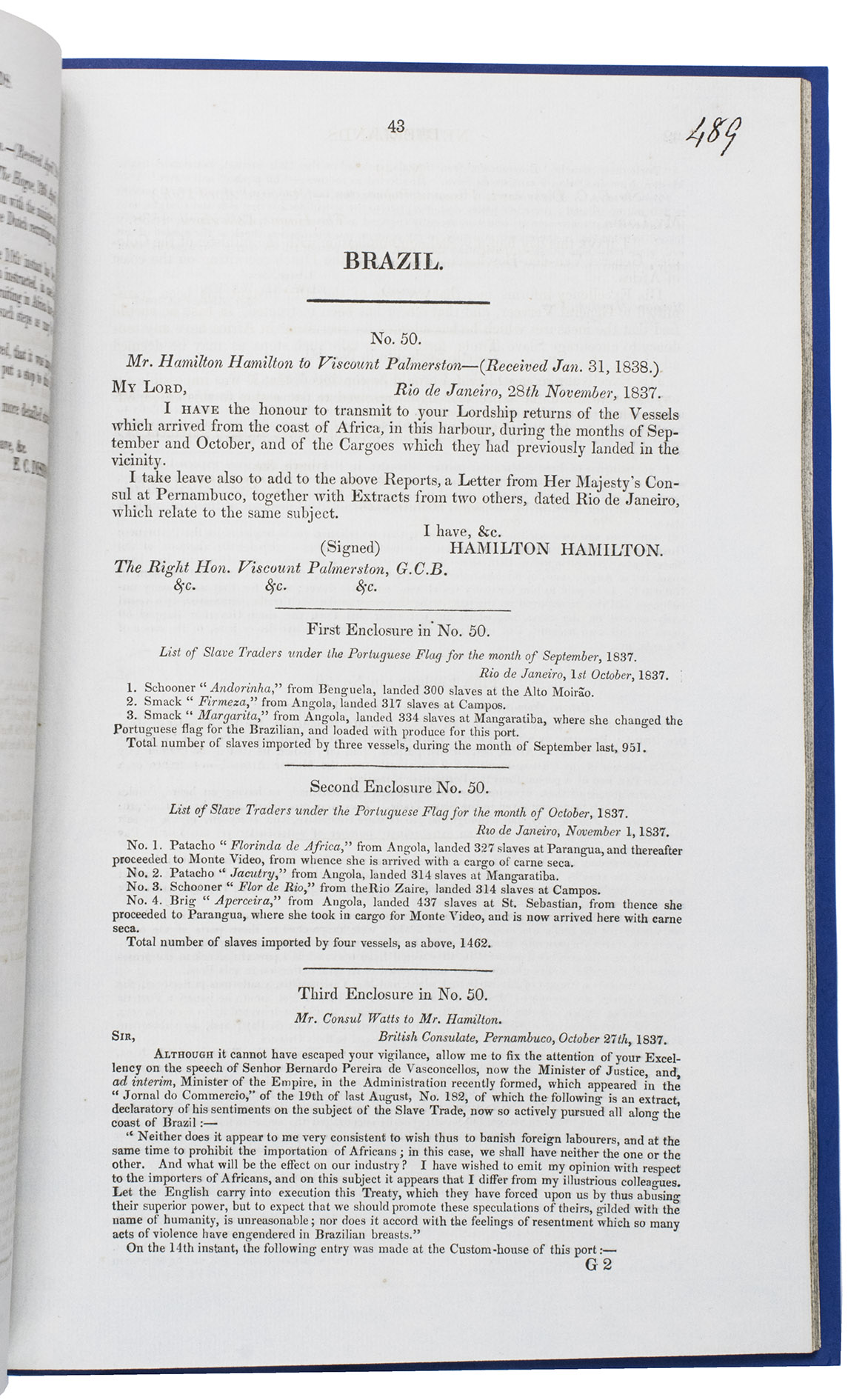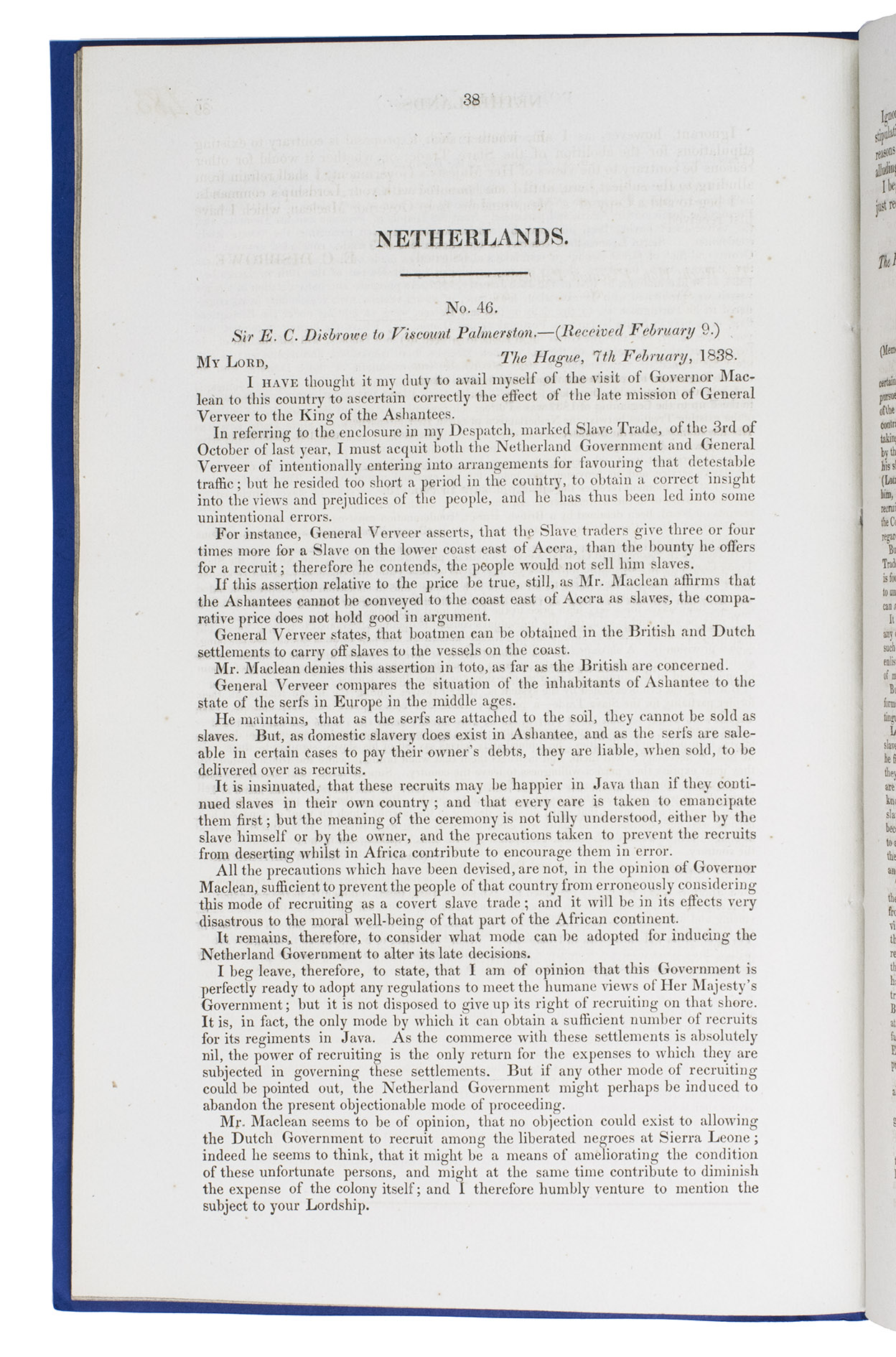[CORRESPONDENCE - SLAVERY AND SLAVE TRADE].
Correspondence ... relating to the slave trade. [In some volumes: "relative to the slave trade", "on the slave trade" or "respecting the slave trade"].
London, William Clowes (1837-1845); T. R. Harrison (1848-1872); 1837-1872.
With:
(1) Class B (further series). Correspondence with foreign powers regarding the slave trade. 1837.
(2) Class C. Correspondence with foreign powers, parties to the conventions between Great Britain and France upon de slave trade. May 1838 - February 1839.
(3) Idem. June - December 1839.
(4) Idem. May - December 1840.
(5) Class D. Correspondence with foreign powers, not parties to conventions, giving right of search of vessels suspected of the slave trade. May 1838 - February 1839.
(6) Idem. February - May 1839.
(7) Idem. January - May 1840.
(8) Idem. May - December 1840.
(9) Class C. Correspondence on the slave trade, with foreign powers parties to conventions under which vessels are to be tried by the tribunals of the nation to which they belong. January - December 1941.
(10) Idem. January - December 1942.
(11) Idem. 1844.
(12) Idem. January - December 1846.
(13) Class A. Correspondence respecting slavery and the slave trade in foreign countries and other matters. January - December 1871.
(14) Idem. January - December 1872.
14 volumes. Folio (32 x 20.5 cm). With several tables of data.
Later stiff blue paper wrappers with white title-label on the front cover, blue sprinkled edges. Ad. 11 in beige paper wrappers.
€ 8,500
Rare collection of 14 volumes containing transcriptions of British diplomatic correspondence with other countries relating to the slave trade in the 19th century, printed for the British government. Although slavery in the British Empire was abolished in 1807, enslaved people in the colonies were not freed until 1838. In the present volumes, which mostly date from 1837-1846, directly after slavery was abolished in most British colonies, the British government urges other countries to help put a halt to the now illegal slave trade.
The present collection contains the correspondence between Britain and numerous countries in Europe, the Americas and North Africa, especially France, Spain, the United States and Austria. The letters describe the ships carrying enslaved people in detail, also mentioning their ports of call, so they could be more easily found and stopped. Of particular interest are the transcriptions of slave trade acts from various countries as well as the treaties between France and chiefs in African colonies, which are difficult to find in print anywhere else.
The letters reveal the profound change in attitude towards slavery in the middle of the 19th century. The tone of the correspondence with countries that were quick in abolishing slavery, like Denmark, is very different than that of the countries that were much slower, like the Netherlands and various countries in Latin America. However, the letters especially make clear how difficult it must have been to find and stop the ships that were illegally carrying enslaved people. The owners of the vessels often hid their illegal practices behind obscure transactions and renamings, which made finding them arduous and sometimes dangerous. It was the task of British commissioners and naval officers to try to uncover the network behind the Atlantic slave traders and bring them to justice. By collaborating with other countries, the courts succeeded in the condemnation of over 600 vessels engaged in the slave trade and the liberation of nearly 80,000 enslaved people.
Ad 11 with blue library stamp on the title-page ("Bibliothèque du palais de la paix"). All volumes in good to very good condition, some very slight browning and foxing, some marginal notes in most volumes.
Related Subjects:
